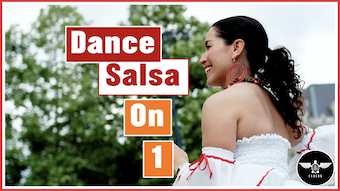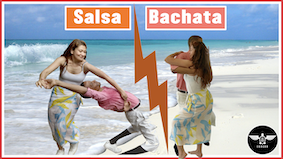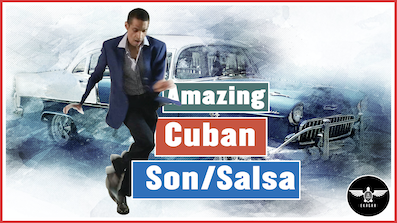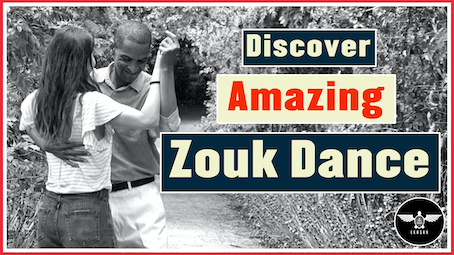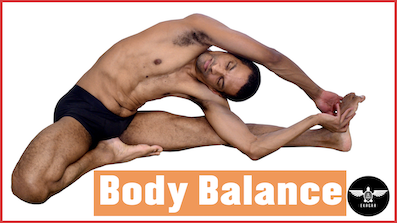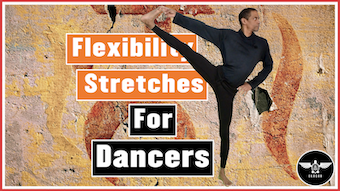
Salsa on 1, an exciting dance style from L.A., is danced on the first beat of the basic salsa steps. It differs from salsa-on-2 (New York salsa) in that the latter uses the second beat to break.
What’s the difference between salsa on 1 and salsa on 2?
ITo answer that question, we need to analyze the musical patterns of a typical salsa song. Generally speaking, a salsa lyric is made of recurring loops of 2 measures each. These two measures are what form the basic salsa steps. Each measure has four beats making it a pattern of 8 beats. So, when you listen to a salsa song, you hear a ‘bunch’ of 8 beats repeated incessantly. You must ensure your steps fall within these eight beats as a dancer. That’s why you hear the term “to dance on beat”. It’s like a language that found the perfect system for itself.
Why follow the structure? This is a legitimate question. However, imagine you went out to a salsa dance party, and everyone had his own dancing system and counts. How would partners dance together?
🇨🇺 The key instruments
The main instruments that allow us to count these eight beats are the clave and the conga.
The clave is present in many dances, such as son, rumba, mambo, and chachacha. Therefore, it’s used as a key gauging tool to count the beats. Furthermore, this instrument is directly connected to the dancer’s feet. This is particularly prevalent in dances such as Cuban rumba, where the dancers religiously follow the beats of the clave.
🎶 Rumba clave 3/2

From the above picture, you can see the beats of the clave appear five times during a basic step. For example, to dance salsa-on-1, the dancer must make sure his lead leg (the left one for men) will match the first beat each time. On the opposite hand of the spectrum, salsa-on-2 will catch the 2nd beat of the measure, and the lead leg will be the right one.
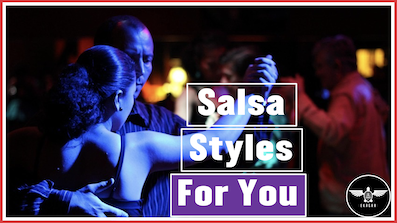
Where is salsa on 1 from?
Generally speaking, those who dance salsa-on-1 are referred to as Los Angeles salsa dancers since the style originated in Los Angeles. On the other hand, those dancing salsa-on-2 are called New York-style dancers. Salsa itself came to prominence in the 60s in New York, following the wave of Latin bands and singers who hit that side of the country with their music. Indeed, groups such as the Fania all-stars took the country by storm with their beautiful and lively rhythms. However, it’s in Cuba that the key dance styles that made up salsa came from. Cuban Dances such as Mambo, Son, Danzon, and Rumba are from that Caribbean island. Later, as these forms were exported, they morphed with the culture they encountered. For example, in Cuba, mambo is danced on music, while in New York, the dance style was changed to fit a dance studio mentality of patterns, etc.
How do you dance salsa on 1?
As I alluded to earlier, to dance salsa-on-1, the dancer must make sure they break on the first beat of the basic salsa step. For men, that means starting with the left leg, and for ladies, the right one. So as the man moves forward, the lady returns (that’s on the count of 1,2,3). Then as she moves forward, the guy goes back (5,6,7).
🇨🇺 Why are these numbers counted that way?
It’s because the 4th and 8th beats are silent ones for the dancers. In Cuban salsa, dancers mark these beats with a toe tap, completing eight steps rather than 6. However, the dancers need to be fast, and completing just six steps might be sufficient.
🇨🇺 How to recognise the Rumba clave

There are two ways to play the clave in rumba—2/3 or 3/2.
These numbers mean that on a basic rumba sequence consisting of 2 measures of 4 beats each, you will hear the clave five times.
🎶Rumba clave2/3
On the 1st measure you hear the clave twice on beat 2&3, then 3 times on beat 5 (and “&” in between 6/7 then after 8)
🎶Rumba clave3/2
On the 1st measure, you hear the clave three times (1, & between 2/3, and & just at the end of the 4th beat). On the second measure, you will hear the clave twice on 6 and 7. Check out the video for a practical explanation of the rhythm.

Amazing steps to dance salsa on 1
🇨🇺 Basic of salsa steps
This step is a staple move to dance salsa on 1.
Man
– As the man moves forward on 1, the lady goes back.
– Then, on the 2nd beat, the man initiates the move back to center with his right leg (2); so that the left leg returns (3).
– He makes the same motion but backward and with the right leg (5). He uses the left leg (6) to bring the right leg to the center.
Lady step
For the lady, this is the exact opposite. As the man goes forward,
– she goes back with her right leg (1),
– comes back to the center with the help of her left leg (2).
– Afterward, as the man goes back, she moves forward with her left leg (5), then uses the right one to come back to the center (6,7).
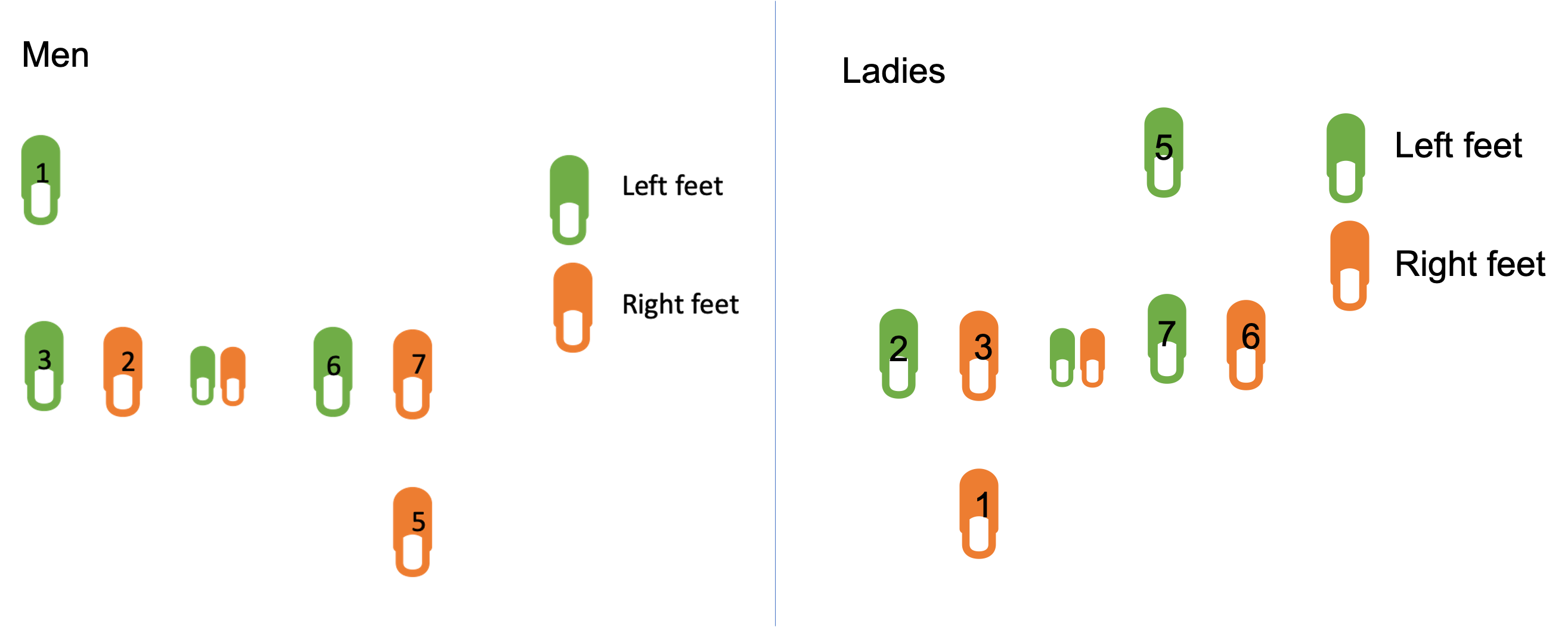
🇨🇺 Basic Turn
Turns are some of the most used moves of salsa dance on 1. So, we will visit two turn patterns. The first one will carry on from the first basic step we just saw.
To help you ladies with the task, we will do this basic step fully once, then initiate the turn on the second basic step.
The guy completes the two basic steps (no turn for him), then helps the lady on the second basic. On the one, as the guy moves forward and the lady back,
▪️ Note
The man lowers his hand in a swinging motion to signal that he will initiate a turn (1,2), then bring both his arm and the girl’s arm up (3). Then on five, he creates a circular motion that makes the lady turn on her right side. Make sure, guys and girls, that your elbows are in. This is one of the key ways people get injured with elbows hitting their partner’s face.
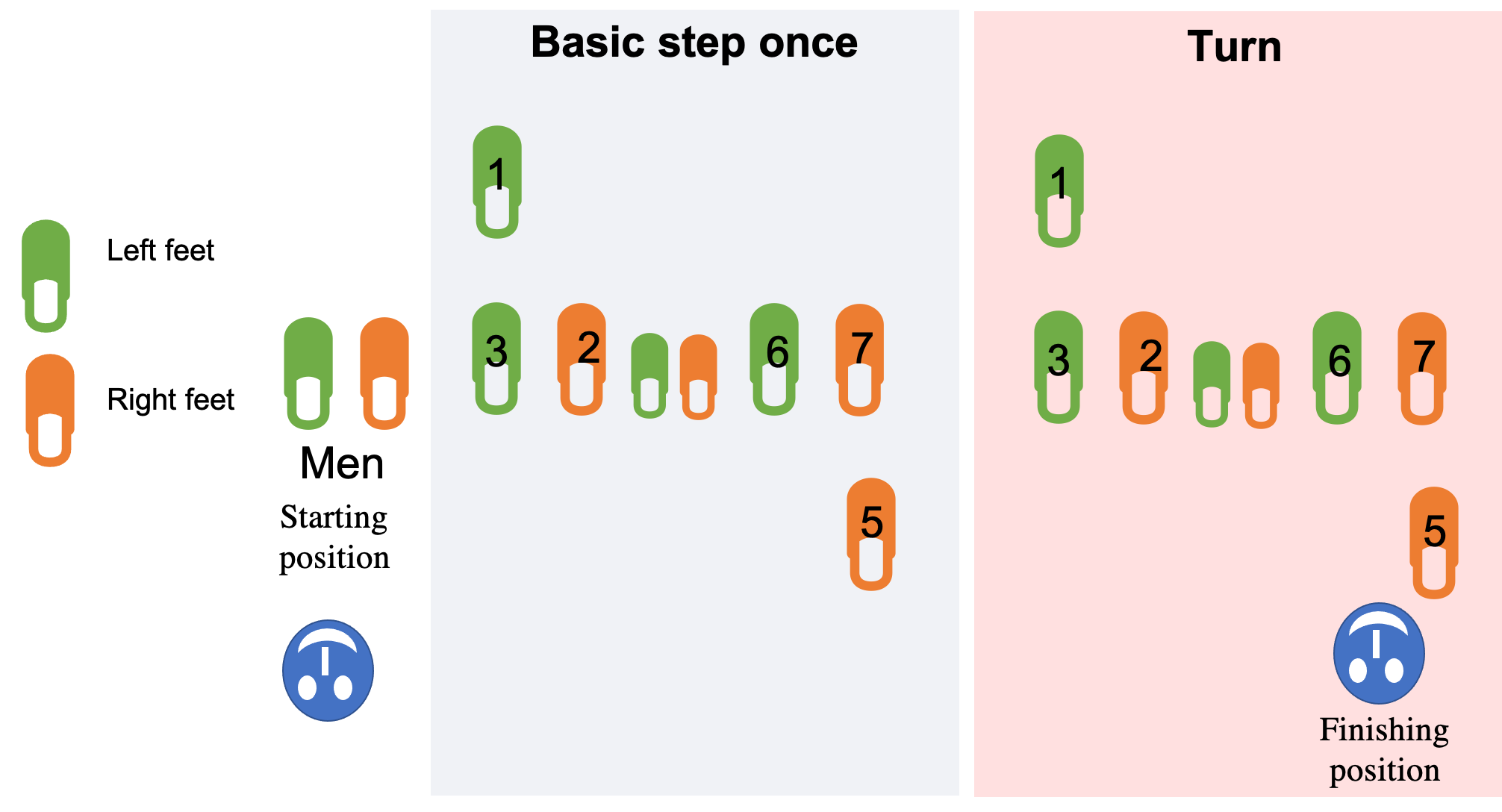
For lady, when you turn on 5, keep your eyes on your partner so that you don’t feel dizzy and can return to the center correctly.

🇨🇺 Follow-through turn
This is another turning pattern, where both partners end up in the opposite direction of where they started.
🔵 Man’s turn
As the man initiates the beginning of the basic step, he brings his left leg at a 90° angle to open up his body and allow the lady to pass. Then, he completes the move by turning his body opposite to where he started.
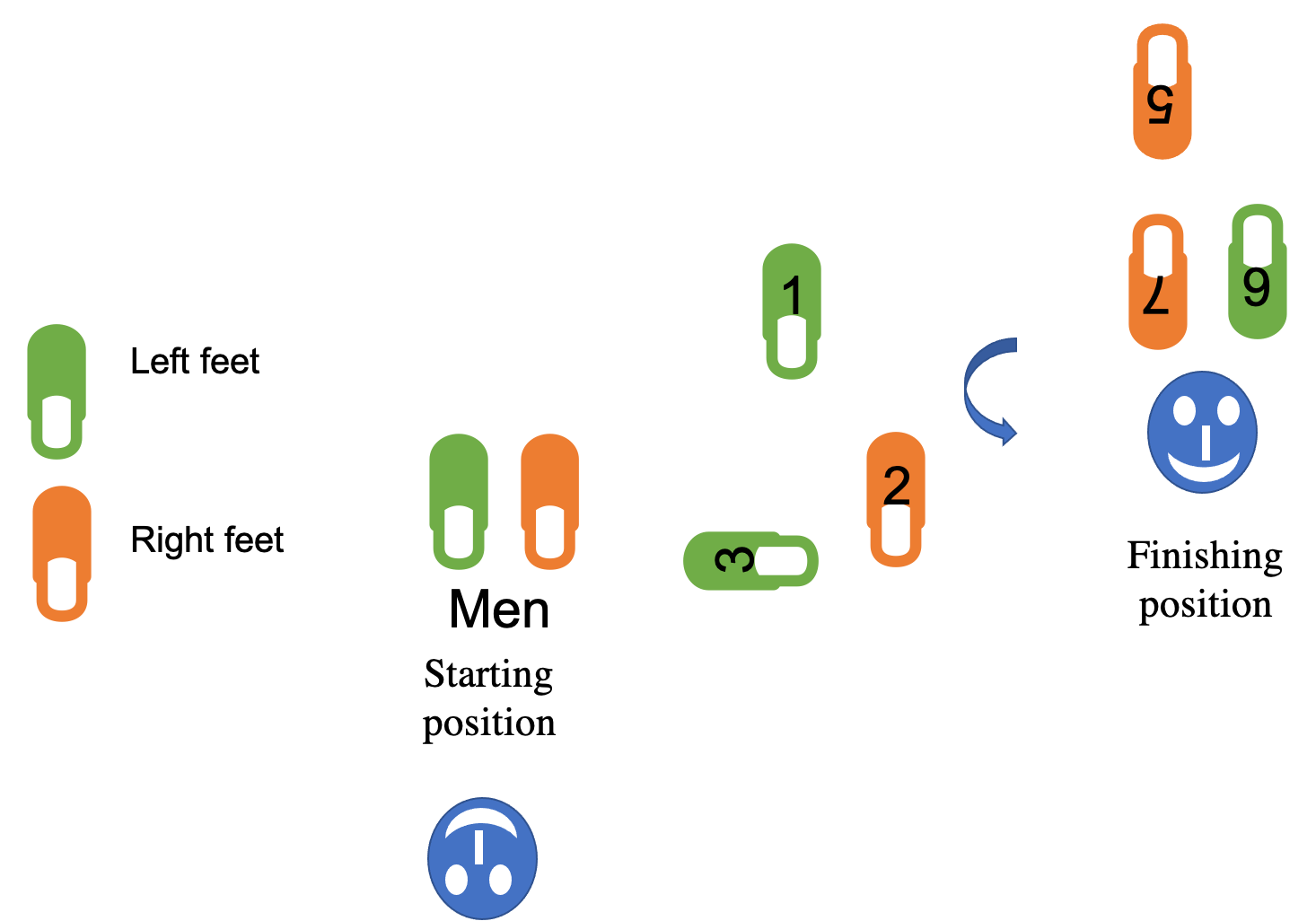
🔴 Ladies’s turn
For ladies, as you execute the first three steps of the basic move, you open your shoulder on the 3rd beat. That will allow you to complete the turn perfectly and come back to face your partner. Next, you initiate your turn on the 6th step.
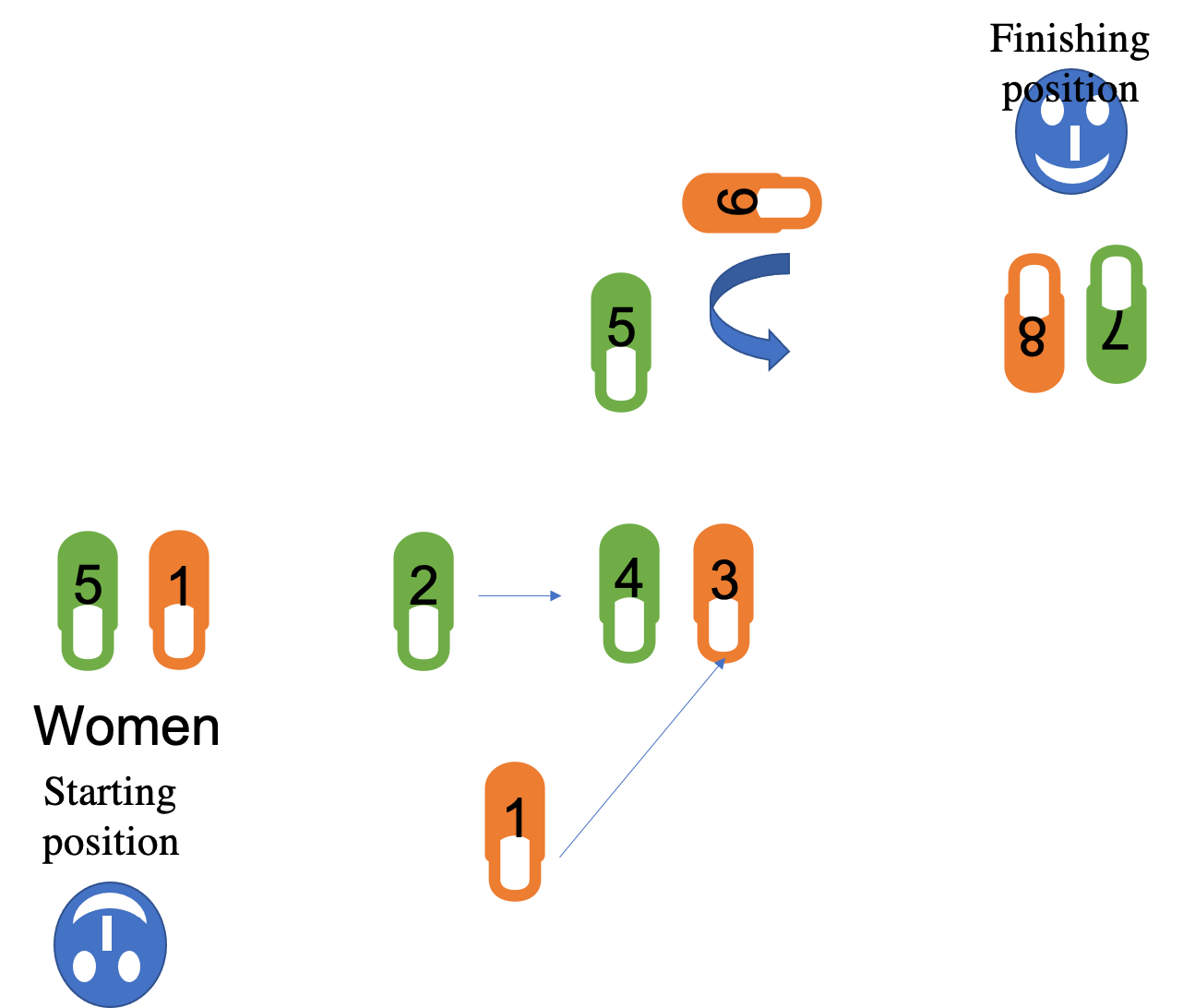
🇨🇺 Follow-through turn
This is another very similar turn to the first one we introduced. The only difference is that the man turns too. Both partners can do this on the same basic step. In this case, the man turns on 1, while the lady does it on 5. I have added the extra basic step at the beginning to help with the sequence.
🔵 Man’s turn
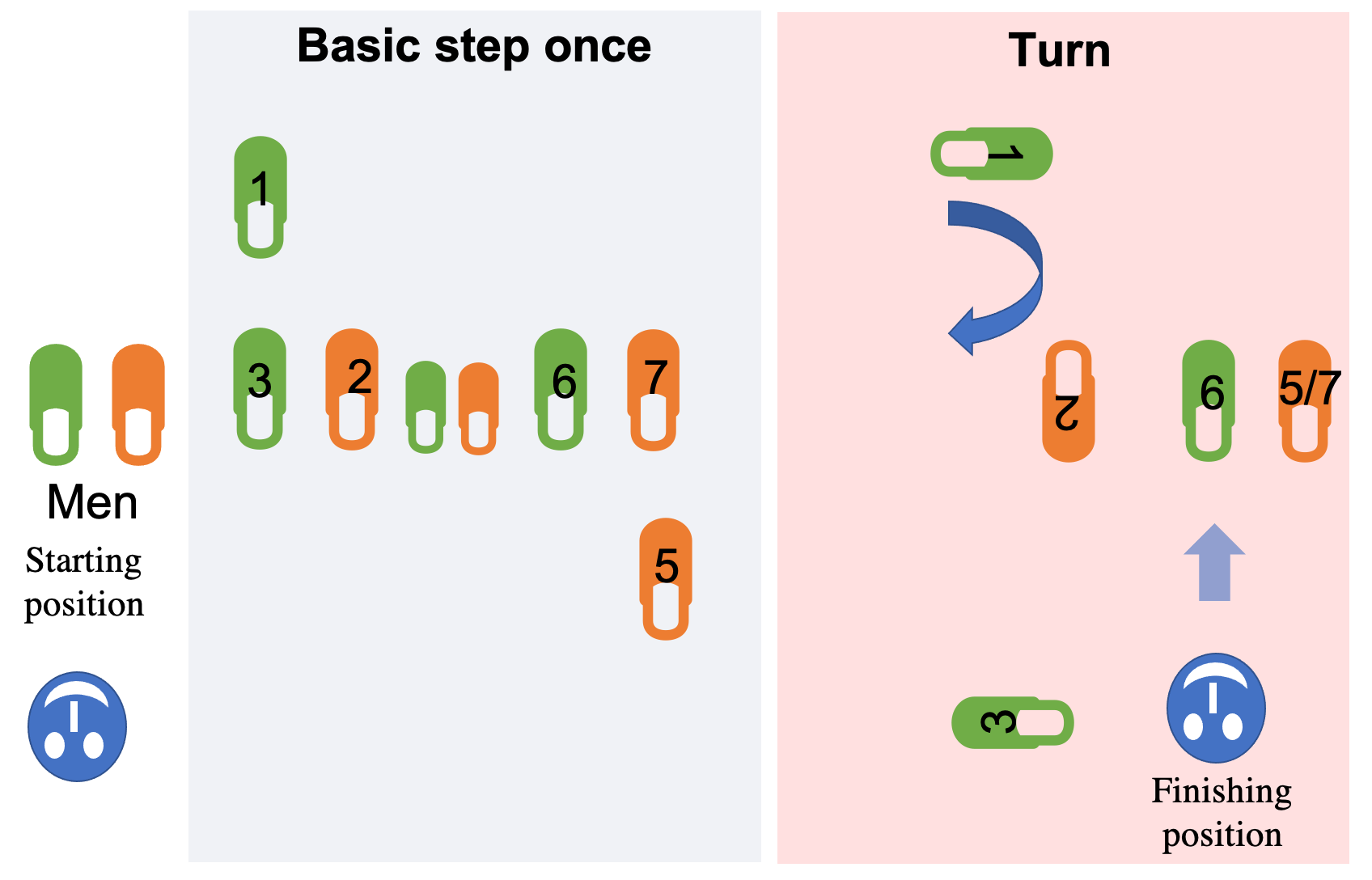
🔴 Ladies’s turn
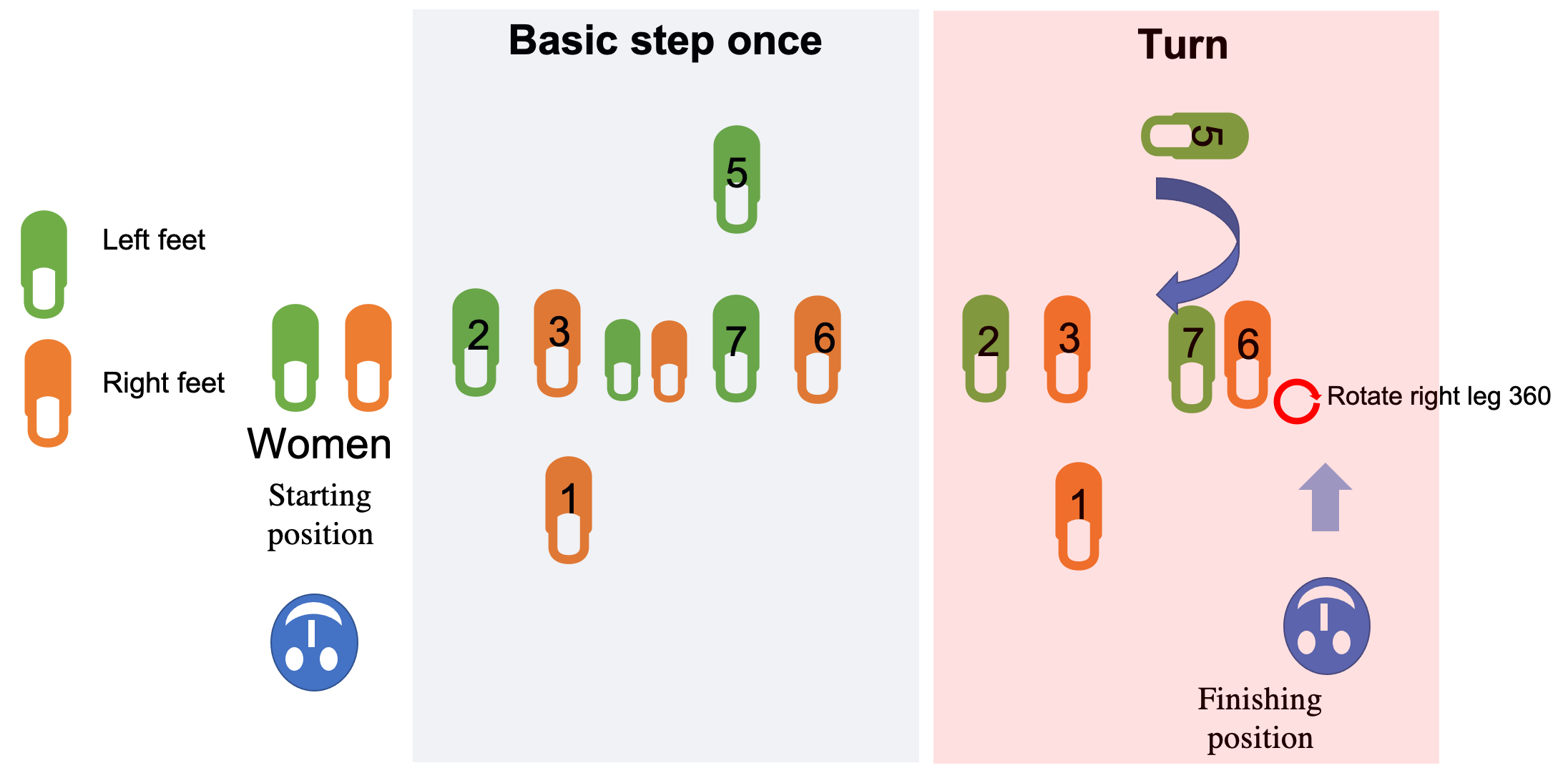
🇨🇺 W pull
In this move, both partners gently pull each other while stepping backward (1). Then, they form a W shape with their arms and use their fingers to bring each other to the center (5 to 7). As we will see next, you can use this move to initiate close-quarter turns.

🇨🇺 Close quarter turn
Unlike the previous two turns, we start in a similar fashion as for move number 4. We use the tension formed by the man and lady pulling back (as they step back) to bring them together. As the man moves backward toward his right (5)with his right foot, the lady moves forward toward her left (5). She then pivots at a 360° angle in position with her right leg (6) and then finishes in the center (7).

Discover new, untapped materials
Learn Cuban Salsa, Bachata, Improv’ and many other dance styles. Check out these videos and see what you can achieve in less than 3 months. Private lessons available for just £35/Hour. Free body movement and basic salsa and bachata lessons provided.

